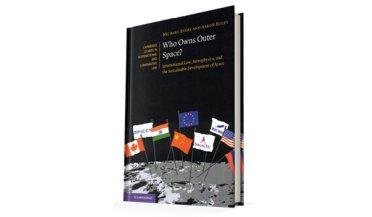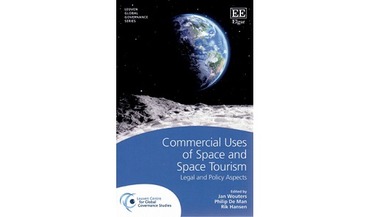 20 May 2022
Outer Space - future for humankind issues of law and policy
20 May 2022
Outer Space - future for humankind issues of law and policy
...and development. A key aspect that comes to the fore in any contemporary writing on space law is the fact that existing space law – as enshrined in the 1967 Outer Space Treaty and its offshoots – is not directly applicable to many of today’s promised...
 01 April 2025
Who Owns Outer Space?
01 April 2025
Who Owns Outer Space?
... call ‘non-trivial’. For decades, the answer has been “no-one”, because the 1967 Outer Space Treaty prohibits national appropriation and declares space to be the “province of mankind”. But those words were written more than half a century...
 May 2017
Will international space law struggle to remain relevant?
May 2017
Will international space law struggle to remain relevant?
... that the prospects for the future use of outer space offer both tremendous opportunities and challenges, whilst international...many regard this as flying in the face of the Outer Space Treaty. The ‘non-military versus non-aggressive’ debate regarding...
 12 October 2016
‘Asgardia’ to become the first new Space Nation
12 October 2016
‘Asgardia’ to become the first new Space Nation
... their scientific aspirations is exciting.” Under current international space law, including the widely adopted ‘Outer Space Treaty’, states are required to authorise and supervise national space activities, including the activities of commercial and...
 11 October 2018
Commercial Uses of Space and Space Tourism: legal and policy aspects
11 October 2018
Commercial Uses of Space and Space Tourism: legal and policy aspects
... (thankfully in this multi-author tome) a decent index. Although the book includes the inevitable background on the Outer Space Treaty and the spaceflight liability regime, it covers present-day concerns about large satellite constellations and...
 September 2016
Moon or Mars - how logical is NASA’s next step?
September 2016
Moon or Mars - how logical is NASA’s next step?
..., the United States’ government is walking a fine line in avoiding Article II of the Outer Space Treaty of 1967 (OST), which banned the appropriation of ‘celestial bodies’. It is true that Article IV of the OST states that ...